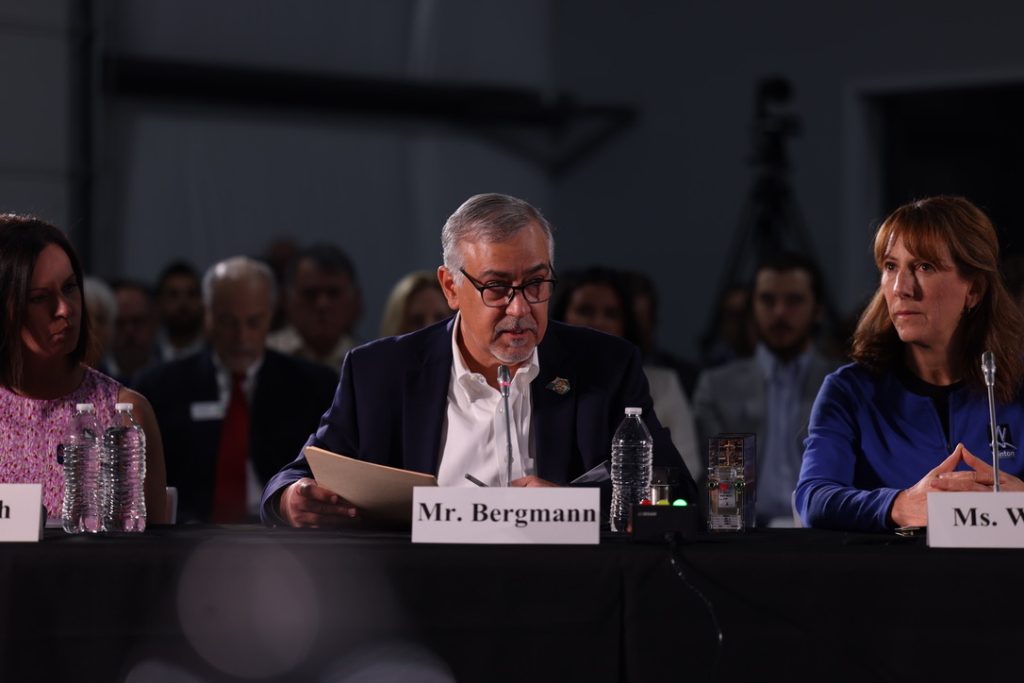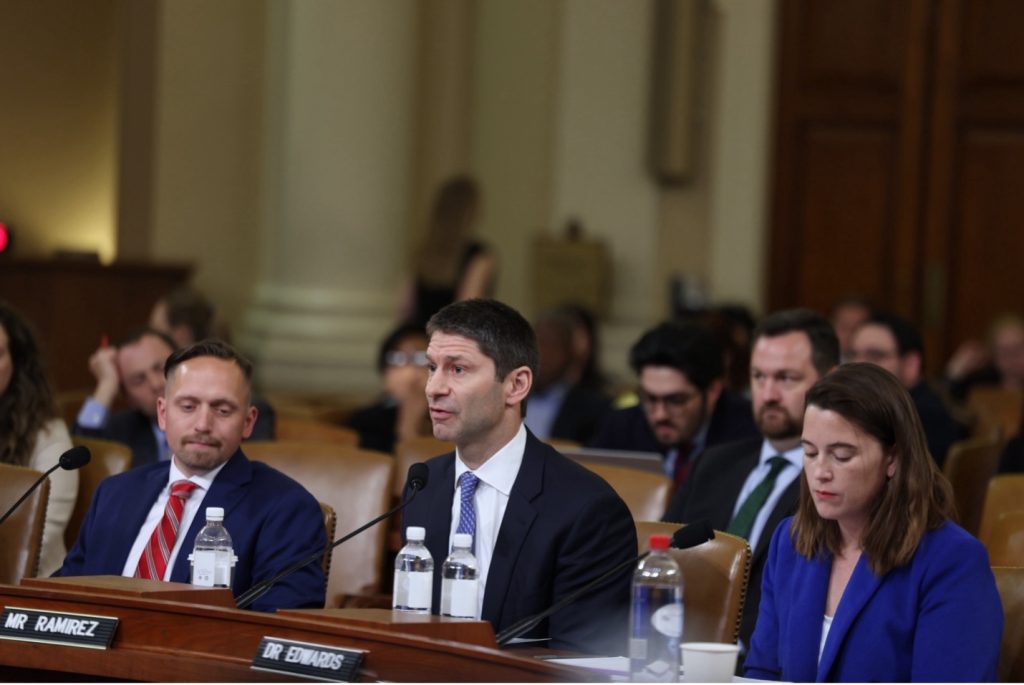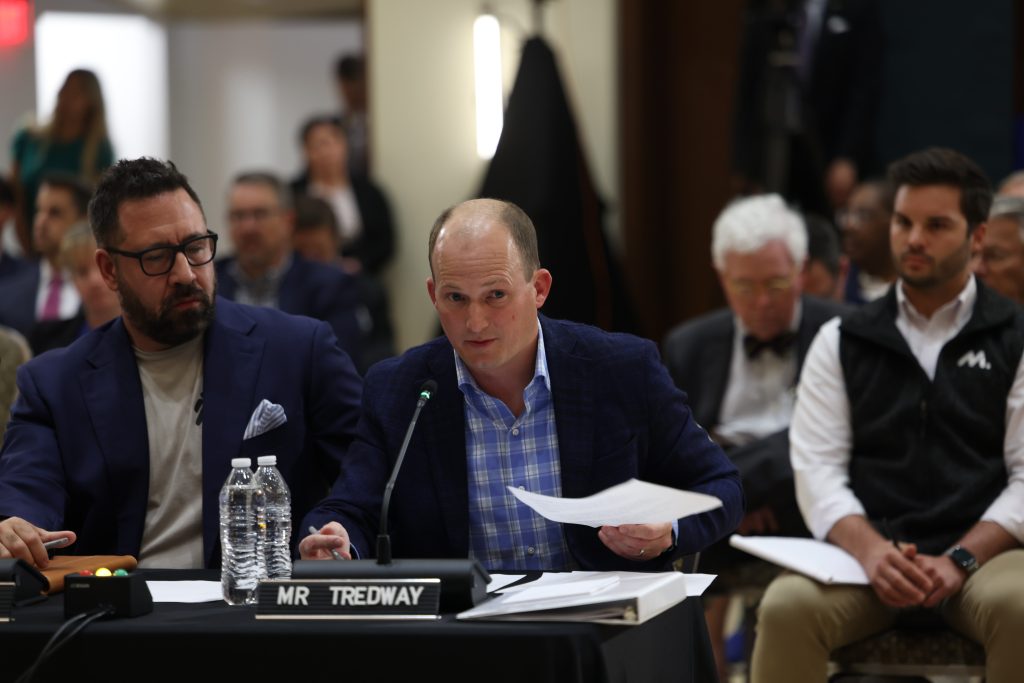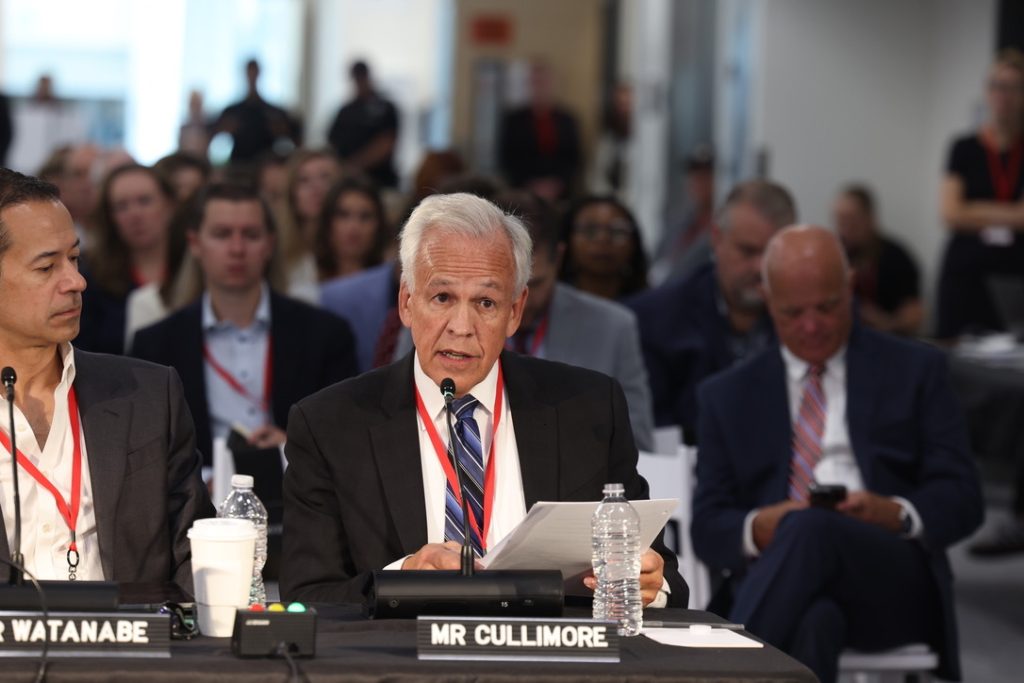How Trump’s Tax Cuts Supercharged American Manufacturing Success!

WASHINGTON, D.C. – Under President Trump’s leadership, America witnessed a manufacturing renaissance, fueled by transformative tax reforms in 2017 designed to supercharge growth. With bold moves like 100% bonus depreciation and increased allowances for small business expensing, manufacturers had the green light to expand their operations and invest in cutting-edge equipment, vehicles, and facilities. The outcome? A surge in domestic investment and economic growth that surpassed all expectations. Analysts project a remarkable 7.4% increase in long-term investments in the U.S., directly linked to these game-changing tax cuts.
WATCH NOW: Trump Tax Cuts: The Path to Economic Greatness
Chairman of the Ways and Means Committee, Jason Smith (MO-08), passionately advocates for the continuation of Trump’s tax cuts to bolster American manufacturing:
“President Trump’s tax and trade strategies revitalized American manufacturing, making it strong and prosperous once again. He fought back against the job-stealing tactics of Communist China to champion American workers. His tax cuts fueled investment across a variety of communities and led to the creation of more blue-collar jobs that uplift working families. In stark contrast, President Biden’s policies have been detrimental for everyday workers, resulting in the loss of 61,000 manufacturing jobs over the past year. Manufacturers nationwide are urging Congress to renew the Trump tax cuts, fostering an environment where American job creators can thrive, invest, and grow.”
A robust manufacturing sector is crucial in the fierce global economic arena dominated by competitors like China. Countless American communities have felt the sting of factory closures and the disappearance of stable, well-paying jobs. The 2017 Trump tax cuts were a lifeline to struggling areas, reversing a painful trend and instilling hope for workers across the nation.
If Congress falters, manufacturers may face the grim choice between higher tax bills or postponing essential equipment purchases and new facility constructions that drive job growth. Allowing Trump’s tax cuts to fade into history could leave the American economy vulnerable and more dependent on an increasingly aggressive Chinese government.
The American Manufacturing Tax Team, led by Rep. Vern Buchanan (FL-16), has been engaging with manufacturers from all walks of life, emphasizing the urgent need to renew Trump’s tax cuts for the manufacturing sector. In committee hearings, witnesses have echoed the significance of policies like full expensing and interest deductibility, with small businesses stressing the critical nature of restoring these tax cuts swiftly. Over 120 listening sessions have taken place across 20 states, allowing the American people to voice their thoughts on renewing the Trump tax cuts to build on their successes. The resounding message is clear: relief from the economic challenges brought on by the current administration is desperately needed.
A Message to Washington
Across various hearings, small business owners and manufacturers have conveyed the profound impact of pro-manufacturing tax policies on their operations, urging Congress to restore and renew the Trump tax cuts.
Hearing on the State of the American Economy | Peachtree City, GA

David Bergman, Georgia Manufacturer: “Knowing that we can expense 100 percent of our investment provides a vital buffer against taxes.”
Hearing on Expanding the Success of the 2017 Trump Tax Cuts | Washington, D.C.

Austin Ramirez, Wisconsin Business Owner: “Accelerated depreciation… offers me more cash flow to invest now and enhances the returns from my investments. With this approach, I can make larger and quicker investments.”
Hearing on Creating More Opportunity and Prosperity in the Rust Belt | Erie, PA

Tom Treadway, Pennsylvania Manufacturer: “Full expensing is phasing out and is set to disappear by 2027, which is a devastating prospect for manufacturers like us. It has already caused delays in our equipment purchases.”
Hearing on Unleashing American Medical Innovation | Salt Lake City, UT

Kelvyn Cullimore, Utah Biotechnology Leader: “We urge Congress to establish an innovative tax framework, including full and immediate expensing of R&D costs, along with bonus depreciation for equipment…”
Hearing on the Success of Pro-Worker, Pro-Growth Tax Policy | Iowa State Fair

Steve Sukup, Iowa Manufacturer: “With accelerated depreciation, we’ve been able to invest in new capital equipment, leading to the hiring of 200 skilled individuals during this period.”
Restoring Full Interest Deductibility
- Record of Success: In the aftermath of the tax cuts, businesses increased their capital investments by 17% while slashing debt by 35%.
- Small Businesses Thrive: Small businesses allocate 6% of their revenue to interest expenses, compared to just 2% for larger corporations.
- Job Creation: Implementing this fix could generate 16,000 jobs, providing a lifeline for workers in need of stability.
Expanding 100% Expensing
- Boosting American Competitiveness: Ensures the U.S. remains an attractive location for hiring, investing, and growing manufacturing, energy production, and other essential industries. Under the tax cuts, investment in American businesses rebounded by 20% as companies shifted from cutting investments to expanding.
- Drive More Investment: Making full expensing a permanent fixture would inject an additional $400 billion into the economy, significantly increasing orders for American-made equipment and machinery.
- Job Creation: Economic analysis suggests that 73,000 new jobs would emerge from permanent expensing.
- Wage Growth: Wages could rise by 0.3%, alleviating some financial pressures on working families facing high prices.
- Boosting Small Business Productivity: Lower costs for new equipment purchases empower small businesses to enhance their productivity.
- Reducing Dependence on China: Full expensing incentivizes American companies to relocate manufacturing operations back to the U.S.






